Athletes push the boundaries of the human body further every day. Sci-fi visions often imagine what comes next—what if we could go beyond our natural limits? Bionic takes us to that thrilling frontier.
It’s the year 2035. Bionic limbs have revolutionized sports, granting superhuman speed and strength. Sisters Maria and Gabi grow up dreaming of glory on the track. But when a tragic turn relegates Maria to the sidelines, everything changes. Now Gabi soars with her bionic leg while Maria watches from the stands.
Desperate to reclaim her chance, Maria’s introduced to a shady group offering a way back in. But their methods come with risks and pull Maria deeper into their world. As the stakes rise from competition to danger, she must decide how far she’s willing to go.
Bionic tantalizes with its hi-tech future. Yet underneath the flashy prosthetics lies a heartfelt story of family and ambition. Director Afonso Poyart grounds futuristic thrills in Maria’s very human struggle. While the plot occasionally strains to weave multiple genres together, the strong central performance of Jessica Cores carries us along. Ultimately, Bionic crosses the finish line, leaving viewers contemplating how technology transforms what it means to be human—and how far we’ll go to chase our dreams.
Bionic Beginnings
At the center of Bionic’s story are sisters Maria and Gabi Santos. They’ve both dreamed of track stardom since they were little, looking up to Maria’s mother, a legendary sprinter. But things change following an accident that costs Gabi her leg.
Enter bionic limbs. With her new prosthetic, Gabi finds new heights of speed and strength. She becomes an international sensation, winning gold and admiration. Yet for Maria, it’s a bitter pill. She finds herself outshone and overshadowed, her chance at glory slipping away.
Maria descends into a haze of jealousy, wanting what Gabi has—fame, sponsorships, a sense of purpose. That’s when Heitor enters the scene. He runs an underground group modifying bodies with advanced tech. To Heitor, bionic limbs represent more than prosthetics—they symbolize empowerment and rebellion against a society leaving people behind.
Heitor sees Maria’s frustration as an opportunity. He offers to give her enhanced limbs too, renewing her shot at greatness. But there’s a cost. Heitor expects Maria’s help in shady “jobs” to fund further modifications. Step by step, Maria finds herself drawn into Heitor’s criminal world.
As the story unfolds, each character faces intriguing changes. Gabi battles ego and self-doubt as a sensation, wondering if she deserves success. Heitor’s ideals blur and harden as his mission takes priority over people. Most impactful is Maria’s arc. At first blinded by envy, she awakens to the true cost of shortcuts. Her bond with Gabi—once fierce rivals—becomes the story’s heart.
Bionic weaves an engaging tale of family, ambition, and humanity’s relationship with cutting-edge tech. Its themes may touch on big questions, yet grounding them in intimate character journeys is what makes their exploration compelling.
Potential Perceptions
Bionic takes us to a fascinating future. Bionic limbs have revolutionized athletics, giving amputees abilities far beyond natural limits. These “bionics” now dominate the sports landscape.
It’s an intriguing premise exploring humanity’s relationship with technology. As bionics reach pinnacle performance, what happens to regular athletes? Might some feel compelled to amputate healthy limbs for an edge? Are we enhancing or replacing our nature?
These questions frame Bionic’s world and themes. The film hints society has bifurcated, with bionics as superstars and others struggling. Sponsorships, fame, and fortune flock only to the augmented. In this reality, being disabled seems rebranded as an advantage.
Such a dramatic shift would understandably divide perceptions. While bionics’ success celebrates the human drive to surpass all barriers, their monopoly of competition raises ethical concerns. At what point does enhancement become inauthentic? When does triumphing through bionics diminish the natural human achievement of others?
These complex issues remain unresolved as Bionic focuses more on personal drama. But they form a thought-provoking backdrop, increasing the stakes. Seeing such societal implications grounded in character struggles makes for compelling future speculation.
Perhaps such divisions in a two-tier system were inevitable but also temporary, as perceptions adjusted to technological change revamping old definitions. After all, a future where disability no longer limits potential seems one worth pursuing—if all can share in its promise through fairness and understanding between evolving definitions of ability and disability alike.
Impressions from a Technophile
Bionic blends genres intricately, shifting between sports drama, sci-fi thriller, and family tension. For a first-timer, the tonal range tested Afonso Poyart’s direction. While juggled elements muddy focus at times, ambition deserves praise.
Where Poyart shines brightest is crafting his vision. The futuristic São Paulo leaps vibrantly from screen. Neon-lit towers glisten as bionic athletes showcase new pinnacles of prowess. Production designer Carolina Moura envisioned a world compelling enough to stay in, while visual effects bring prosthetics’ potential to dazzling life. Believability left me pondering possibilities.
Sound too enhances immersion. Composer Lucas Marcier weaves electronic melodies evoking tech’s human metamorphosis. During intense scenes, pulsating synths sync perfectly to amplified motions. Elsewhere, minimal piano and strings convey intimacy amid hardship. Together, visual and aural aesthetics strengthen Bionic’s foundation for deeper questions.
Yet despite craft mastery, coherence remains a challenge. Story strands stretch Poyart’s grasp, and lack of tight editing hurts momentum. Early sports scenes captivate through bionics’ beauty, but criminal subplots distract. The director shows skill-crafting components individually but struggles combining them artfully.
Overall though, Bionic makes its most poignant impressions technically. For a technophile, witnessing science fiction spring vividly to life through talented hands and ears remains pure delight, flaws notwithstanding. Poyart has an eye and ear to enrapture, and with experience, he may hone a defter hand steering multifaceted narratives. Bionic offers glimpses of his talent to come.
Committed to the Craft
Bionic sees Jessica Córes carrying the film on her able shoulders. Playing Maria, an athlete struggling to keep pace with bionic brilliance, demands strength both physical and emotional. Her performance displays dedication to a nuanced portrait, imbuing Maria with complexity as hopes and relationships warp.
Watching her dedication to training, you feel every push and pull of muscle. When vulnerability emerges, she grants it richness without surrendering poise. Córes makes Maria’s motivation understandable, if not always condonable, navigating gray shades deftly. Her magnetic presence proves this was a role written for her talents alone.
Co-star Bruno Gagliasso brings similar commitment as the enigmatic Heitor. Cool menace laces his delivery, glimpses of humanity emerging from behind smirks. You believe this man is capable of shady acts made justifiable in his eyes. Whether confronting foes or fiery passion with Córes, Gagliasso inhabits Heitor fully. Supporting roles likewise surrender to physical demands, like Gabz lending authenticity to Gabi’s new normal. These performances ensure Bionic’s humanity, even when scripts stray from character.
With competition amplified to superhuman feats, all performers faced a test. I respected their willingness to embrace rigors, bodies manipulated to portray pushing limits. Stuntwork blends seamlessly with featured actors in key set pieces too. While narrative flaws emerge, these committed efforts to embody augmentation’s pros and cons imprinted Bionic’s vision on my mind’s eye long after closing credits. I left hoping to witness the full potential of talents willing to truly transform themselves for their art.
Promising Potential, Frustrating Finish
Bionic flirts with fascinating themes yet fails to fully realize its promise. At its core lies a thought-provoking premise: What becomes of human identity when augmented beyond nature’s boundaries? Here, a future sees prosthetics propel “bionic” athletes to superhuman feats. Beyond flashy scenes showcasing their feats, meaningful questions deserved dedicated exploration.
Alas, complexity gives way to convoluted confusion. Countless subplots muddle the main narrative. A sibling rivalry and criminal underworld divert focus from a meaningful meditation on humanity’s relationship with technology. Characters twist on a dime, lacking grounding. Maria transitions to bionics too smoothly, without reckoning with heady implications.
Visuals impress, crafting an immersive vision of a tech-entwined world. Scenes of bionics in action enthrall, displaying mastery of prosthetics. Yet even here, potential goes untapped. Storytelling falters, weakening impacts. Tension fails to twist guts as it builds to a climactic tournament.
Strong performances emerge despite flaws. Jessica Córes carries nuance as Maria, though given little room for depth. Bruno Gagliasso makes an enigma of Heitor. Yet all remain trapped, wandering aimlessly through an incoherent plot.
Bionic held in hand philosophy and spectacle. But it dropped the former to pursue trivial tangents. One hopes its practitioners refine focus, learning from missed opportunities. Its best installments hint at the profundity this cyberfuture could confront. But ultimately, it proves a frustrating near-miss, with suggestions of brilliance glimpsed only in fleeting flashes.
Promising Premise, Flawed Finish
Bionic tells an intriguing tale of human enhancement in sports, yet struggles in execution. At its core lies a thought-provoking setup—what happens when bionic limbs give some athletes a high-tech edge? Unfortunately, the story becomes tangled in unnecessary subplots.
A sibling rivalry and criminal undertones distract from deeper themes. Characters shift suddenly, losing focus on key questions around identity and technology. The film bites off more than it can chew, never fleshing any one story well.
It’s a shame, as Bionic hints at fascinating discussion. How will prosthetics change competition? What does victory mean for those relying on devices versus raw human ability? When does modification become too much? The ingredients are there, but the movie never cooks them into a satisfying meal.
Visually, it impresses, crafting a believable futuristic world. But choppy storytelling undercuts any impact. Potential remains, if refined to streamline narrative and flesh out characters.
Sci-fi fans may find bits to enjoy. But casual viewers may grow lost in the messy plot. With a tighter script, this tale of sisters pushed to technological limits could grip audiences. As is, Bionic leaves strings of an intriguing premise sadly unfinished. With lessons learned, its makers could strengthen similar stories in the future.
The Review
Bionic
Bionic holds flashes of promise but ultimately fails to deliver a cohesive viewing experience. Its foundation includes philosophical questions worthy of exploration and visuals hinting at an immersive futuristic world. However, convoluted subplots and thinly written characters scatter any focus, leaving compelling themes mere surface elements. While the film's technical achievements shine at points, unfocused storytelling drags it down. With a tighter script prioritizing its most intriguing aspects, Bionic could have soared. As it stands, it remains an unwieldy missed opportunity.
PROS
- Intriguing premise exploring the relationship between humans and advancing technology in athletics.
- Impressive visual world-building of a futuristic setting where bionic augmentations are commonplace.
- Strong performances from lead actors amidst a convoluted script.
CONS
- Confusing and convoluted plot that juggles too many unrelated subplots.
- Shallow character development that fails to meaningfully explore philosophical themes.
- Unfocused direction and editing undermine the impact of climactic action and sports sequences.









































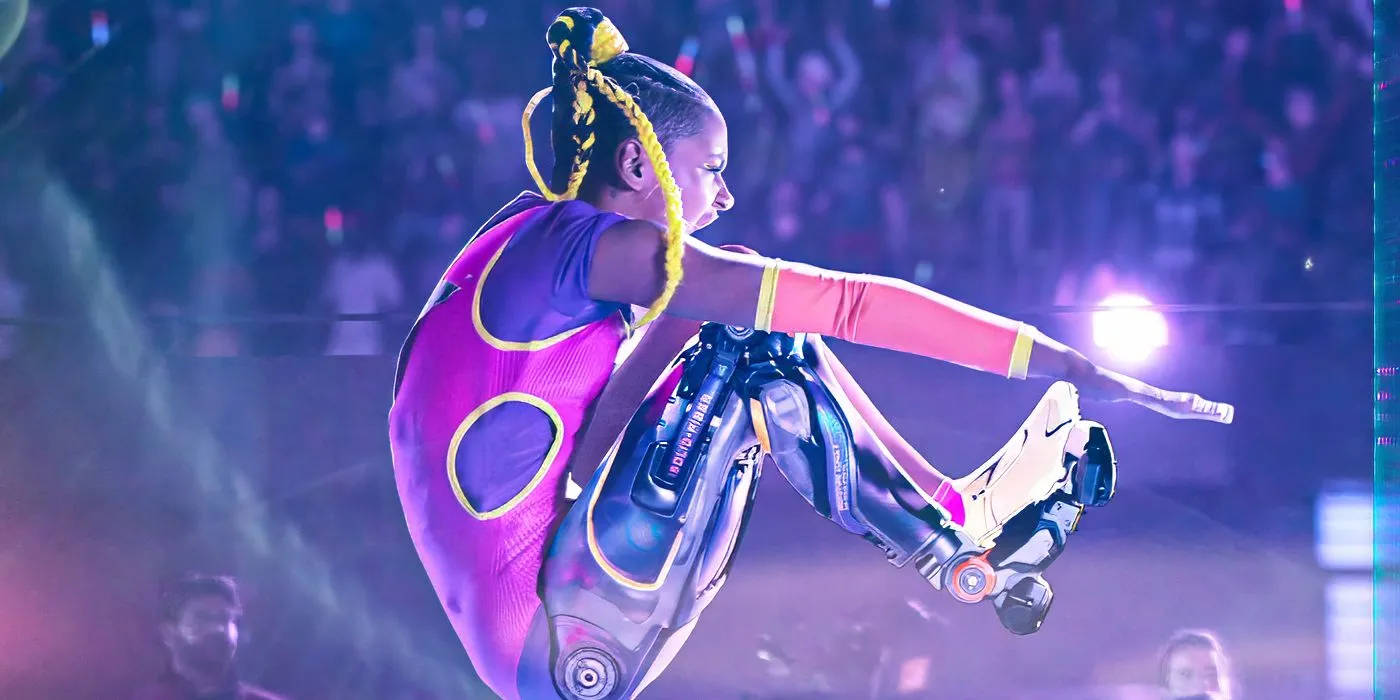
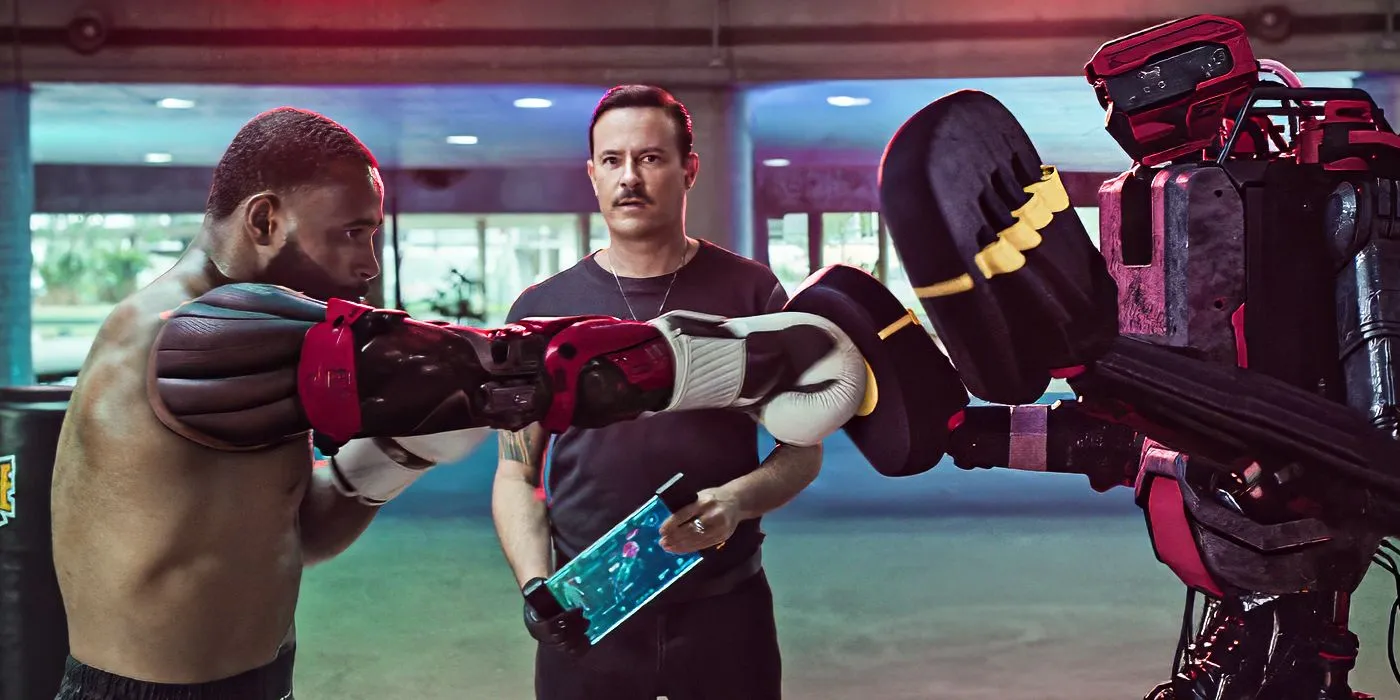
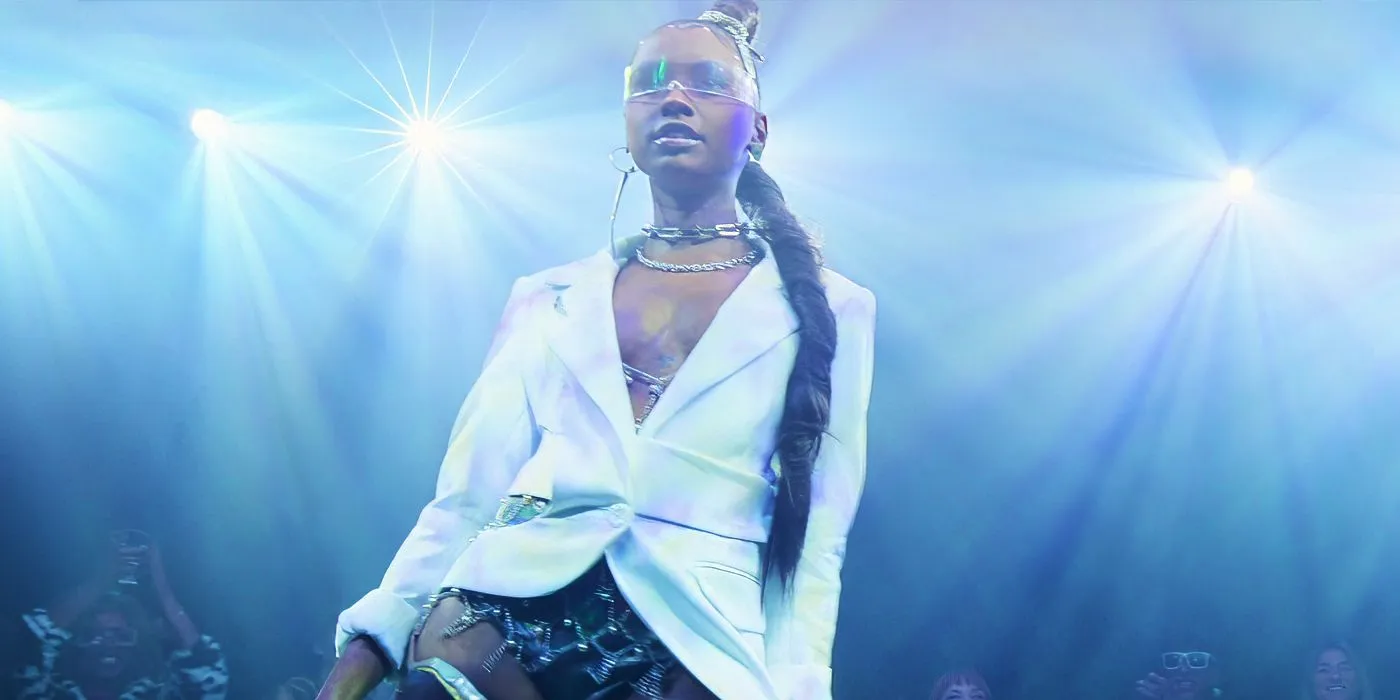
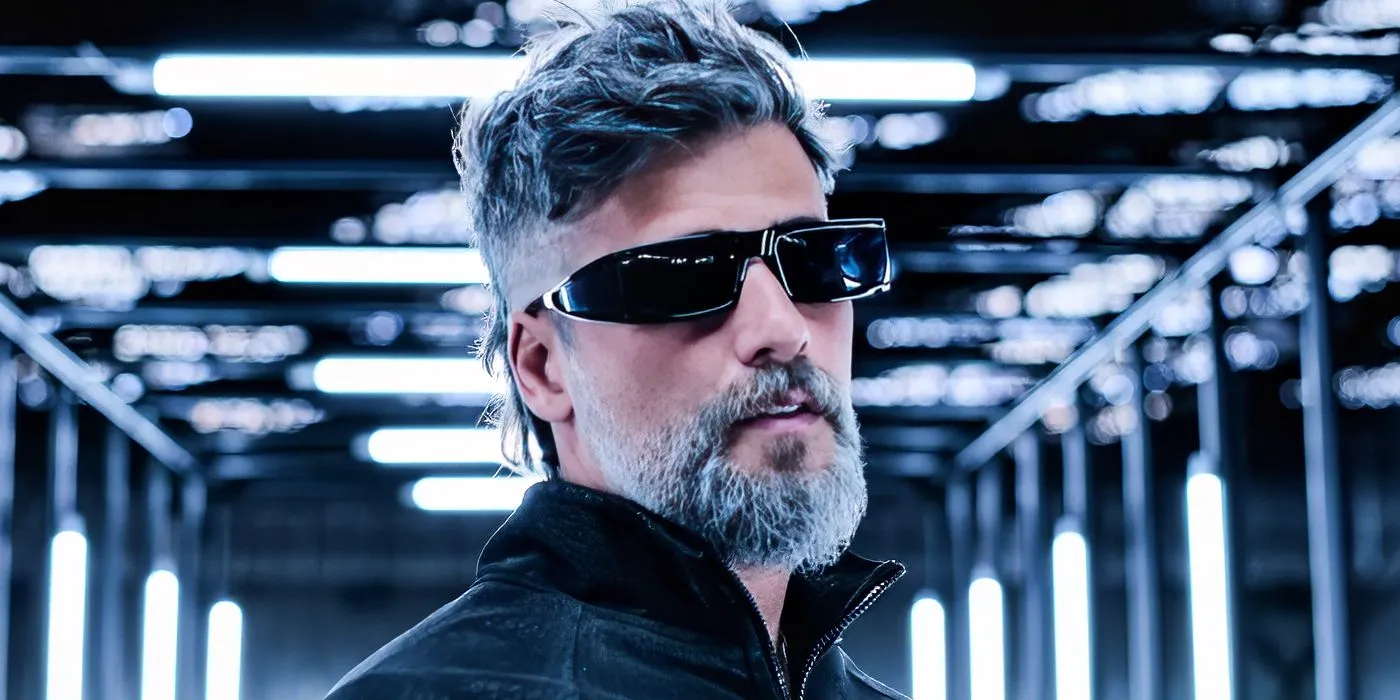
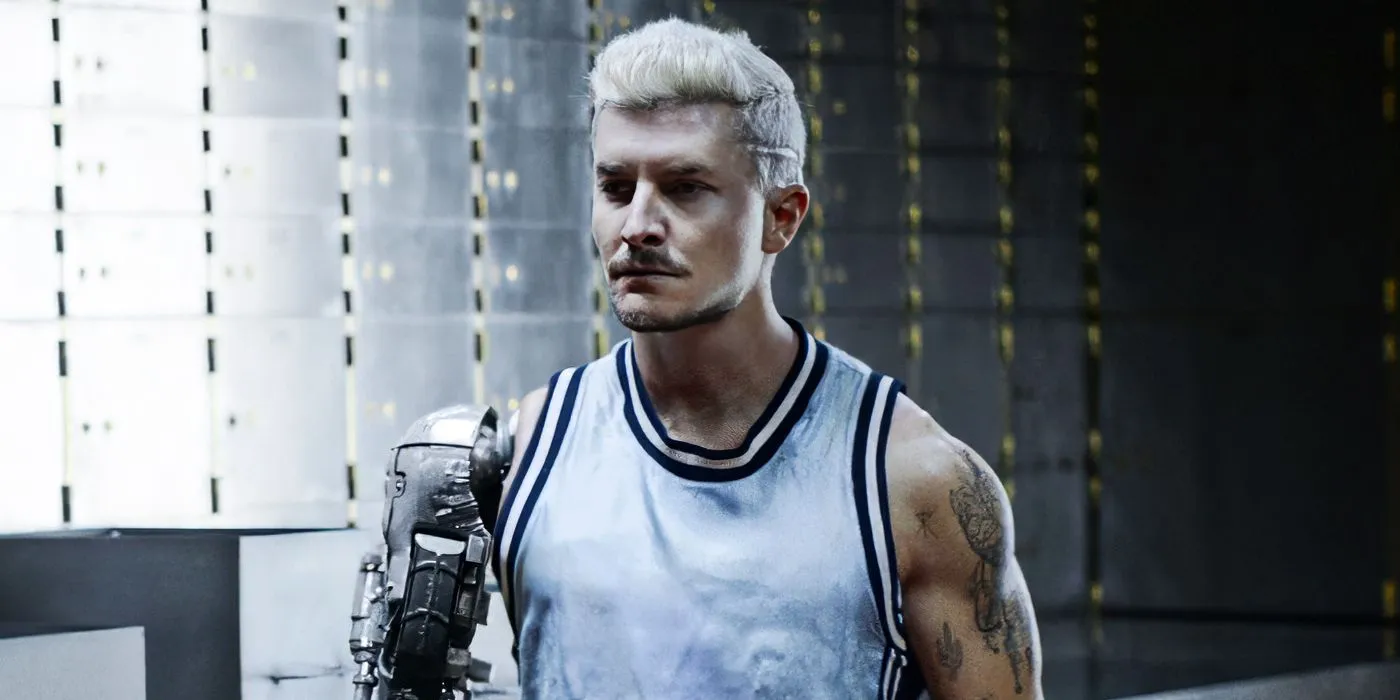








Discussion about this post